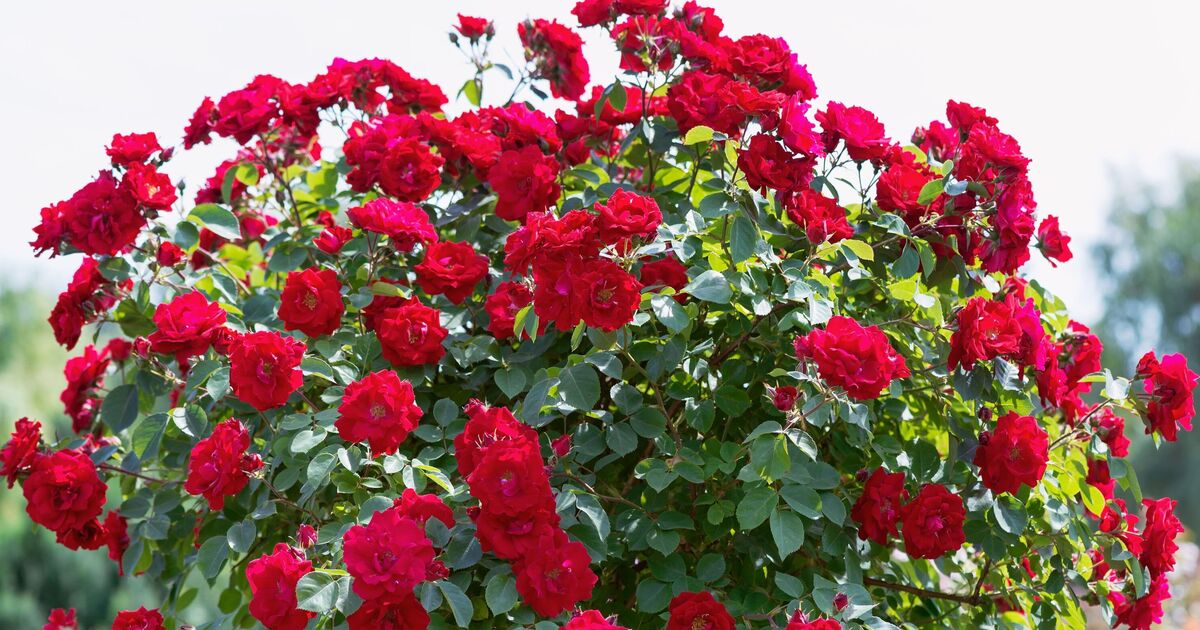Roses appear to go strong in the summer so it’s easy to assume that the blooms will keep on coming with little effort on your part, other than fertilising roses regularly.
While that’s true for some types of roses, others need the occasional help to coax more blooms and maintain the plant’s vigour – this comes in the form of deadheading.
Deadheading is the process of removing spent blooms from plants to encourage new growth and prolong flowering periods.
By deadheading regularly, gardeners can redirect the plant’s energy from seed production to the growth of new flowers, resulting in a beautiful display into autumn.
For those unsure of how to deadhead roses, the green-thumbed gurus at British Garden Centres have put together their top tips so you can “enjoy more blooms for longer”.
The gardening expert recommends roses be deadheaded as soon as the petals begin to wilt and lose colour.
This prevents the rose from putting its energy into seed production and encourages it to focus on producing new blooms.
Deadheading is best done in the cool of the morning when plants are well-hydrated.
To get “larger and more flowers” gardeners can remove the individual wilted blooms while leaving healthy buds intact.
When making the cuts, make sure to do so at an angle rather than straight across as this helps the water run off quickly from the stem remaining on the plant, helping to prevent bacteria or fungi growth on exposed plant tissue.
When deadheading roses, retain as much healthy foliage as possible. Foliage plays a critical role in photosynthesis, the process used by plants to convert sunlight into energy for producing food and, ultimately, more blooms.
They explained that regularly deadheading your roses in summer not only “promotes more flowers” but also improves air circulation around the plant, which can help prevent fungal diseases.
Another plus to this gardening task is that it also keeps your rose bush “looking neat” throughout the season.
If you forget to deadhead your roses or don’t have the time, there’s no need to panic.
Deadheading motivates the plant to rebloom faster. If you are growing rose plants that produce rose hips after the blooms fade, you may prefer not to deadhead at all.










